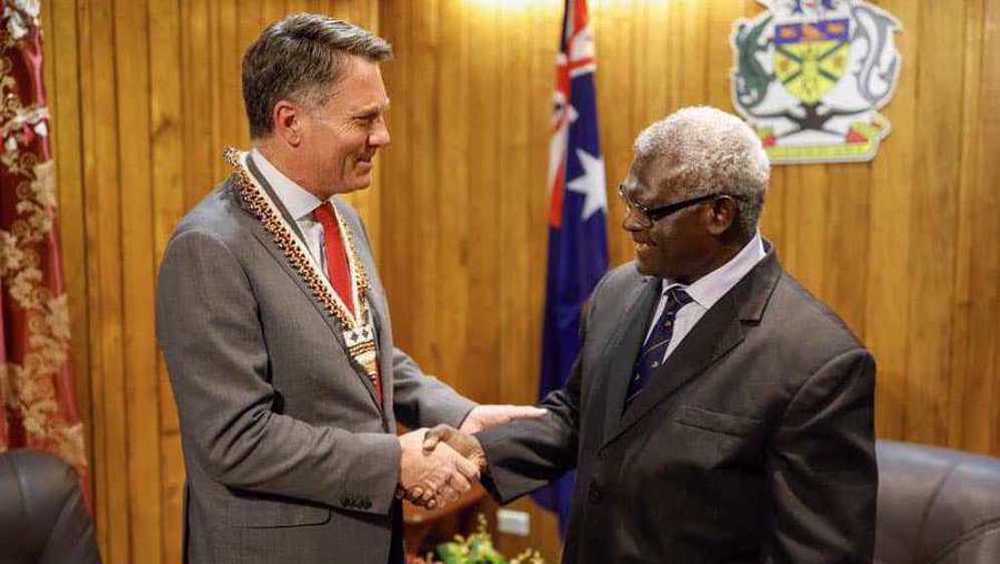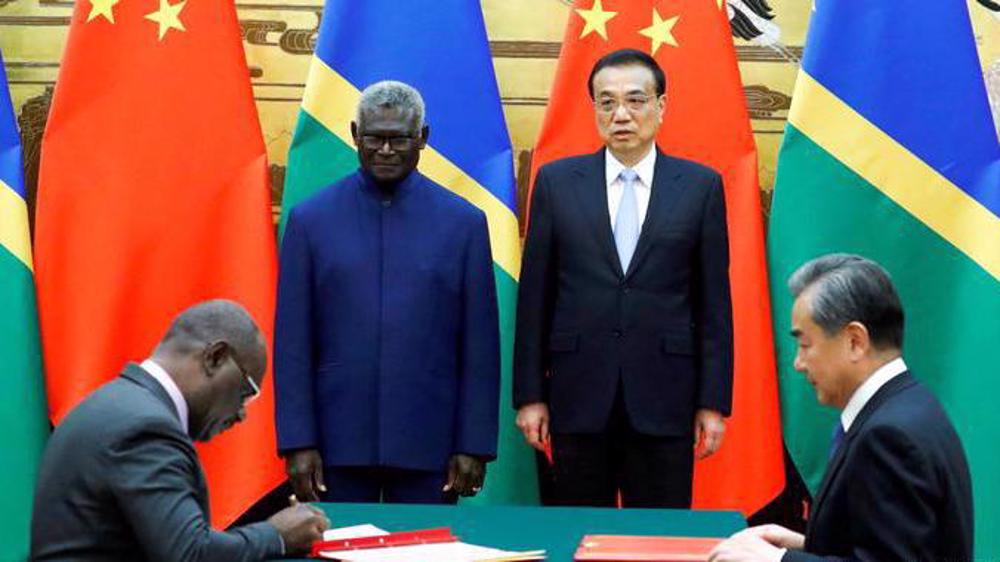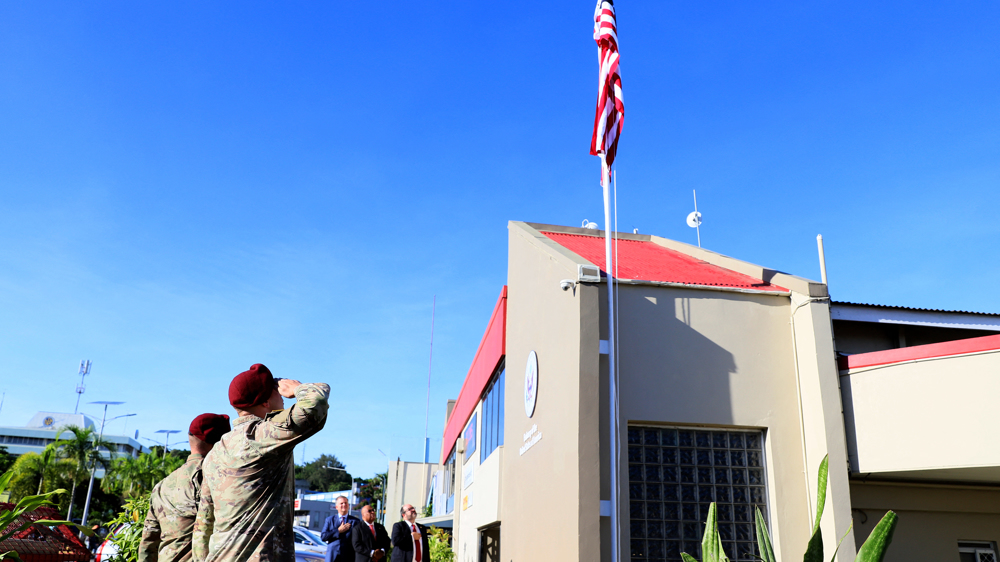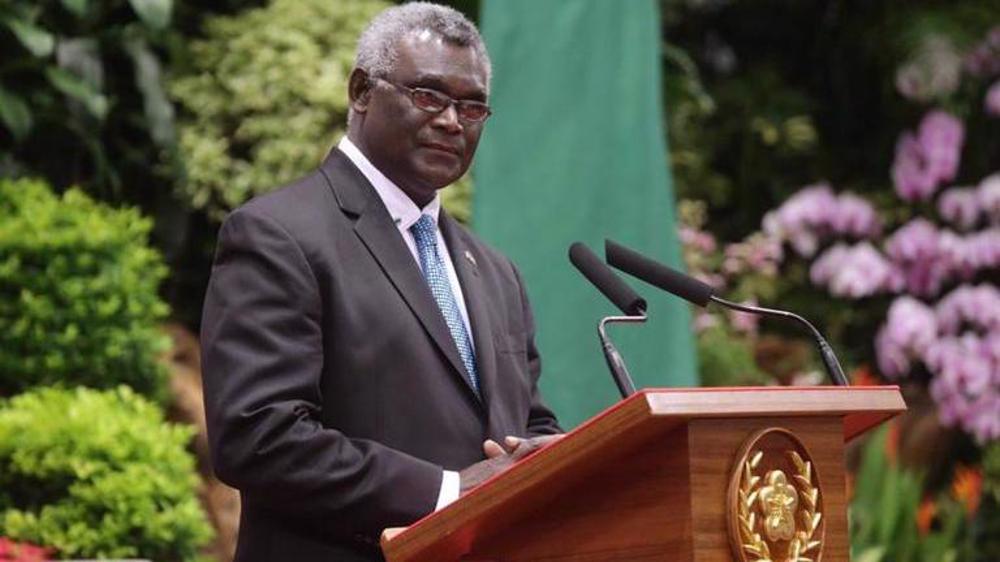Solomon PM urges review of security pact with Australia in move likely to anger China
The prime minister of Solomon Islands has called for a review of a security treaty with Australia as he hosts the country's defense minister in the capital Honiara, amid concerns by China that Canberra is playing into US-led competition in the Pacific.
Prime Minister Manasseh Sogavare met Australia's deputy prime minister and defense minister Richard Marles, who arrived in Honiara for a two-day visit on Wednesday.
Sogavare's office said the prime minister had "conveyed the country's appreciation to Australia's on-going support in the area of security" in the meeting.
"The Prime Minister expressed the need to review the current security treaty between the two countries to take into account the changing security challenges faced by both countries," said the office in a statement.
Marles also wrote on Twitter that he had "a productive meeting" with Sogavare, discussing "the deepening partnership between our two countries, including through regional security, infrastructure, labor mobility and health."
Marles' visit to Honiara comes days ahead of a visit by Sogavare to China.
The growing military ties between Australia and Solomon Islands have worried China, with Beijing charging that Canberra is promoting US-led competition in the region.
Australia has had a decades-long security relationship with the Solomon Islands. It deployed troops to the island country in 2021 at Honiara’s request to help quell anti-government protests, alongside personnel from Fiji and New Zealand.
The deployment was part of a 2017 security treaty between Australia and the Solomon Islands, which allows Australian police and defense personnel to deploy rapidly to the Solomon Islands if the need arises and both countries consent.
Situated in Oceania, the state of Solomon Islands also signed a security agreement with China in April 2022.
The deal alarmed Western countries concerned about China’s growing influence in the region although the document does not mention the establishment of a military base in the islands.
Western officials argue the deal opens the door to Chinese military presence in the region, which in the past decade has become a site for geopolitical competition between the world powers.
VIDEO | 85% of Yemeni displaced people face daily hunger crisis
US House passes bill targeting charities and pro-Palestine groups
VIDEO | Supporting Gaza genocide
Hezbollah attacks Israeli forces after Lebanese homes blown up
World leaders, states hail ICC arrest warrants for Netanyahu, Gallant
MP: US accountable for possible Israeli 'foolishness' to attack Iraq
VIDEO | Israeli policies strangle Palestinian agriculture, economy
Iran's president offers condolences to Pakistan over terrorist attack













 This makes it easy to access the Press TV website
This makes it easy to access the Press TV website